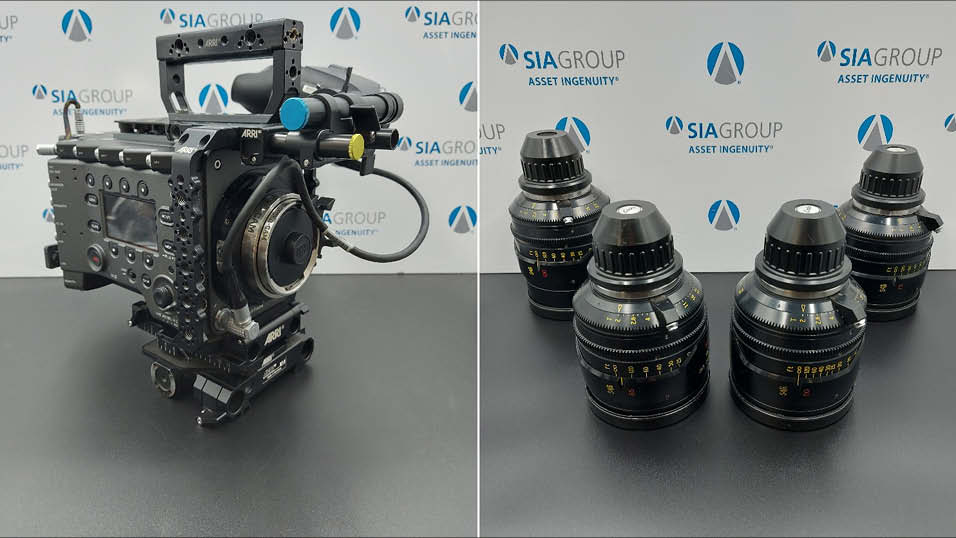 Have I Got News For You? series producer Jo Bunting reveals the behind the scenes challenges involved in creating BBC1’s hit show.
Have I Got News For You? series producer Jo Bunting reveals the behind the scenes challenges involved in creating BBC1’s hit show.
"Producing a show that reflects the news events of the week means quite a lot of the content is out of your control. I spend half my time thinking “there’s so much happening – how can we fit it all in!”, and the other half thinking “why isn’t anything interesting happening?” And occasionally the entire week will have been dominated by a terrible tragedy and you yearn for the week when nothing was happening.
The challenge is to furnish the host with plenty of detail about the story to offer up to the panellists – we like to get beyond the headline and dig down a bit deeper. And HIGNFY can’t be Question Time. However unpromisingly dull the story may seem to be, we need to find the funny quote, the entertaining detail, the surprising fact. We fortunately have a very good team to help bring all that together, and then the executive producer and I take a Round One question each and spend Wednesday writing what we (sometimes misguidedly) regard as entertaining notes and questions for the host.
I’m often asked how much we tell Ian and Paul beforehand and the answer is “nothing”. Having said that, after 25 years, both of them are aware that the show will be about what’s happened in the news so there’s a clue there.
We record on a Thursday evening and from Monday to Wednesday, decisions are made about the content. On Monday and Tuesday, the producer and I decide on the Odd One Out questions and pick the headlines and Guest Publication that will form the Missing Words round. Decisions about which two main stories should form Round One and the three or four smaller stories for Round Two are made on the Wednesday. Obviously if a story breaks on the Thursday we have to react to that, and there will be constant script changes throughout that day.
Writers come into the production office on Tuesdays and Wednesdays to write the jokes for the host to round off each story and the producers will choose which of those get into the script.
Luckily our regular writers have been doing it for a long time and are very, very good at it. Because it would be a bit of a nightmare to have to walk into a room full of alpha types and say “Thanks for sending the jokes through. I just wondered…. could you do some that are… funnier?”
The three producers sit in a room with the host all day on Thursday going through their script. Questions about a story are tweaked, some are cut, others are added. If a new story breaks, we need to get that written in. Much as I love news, I don’t want a lot of it happening on a Thursday afternoon.
We go through to the studio at about 3pm and let the host do a practice run. Members of the production team will sit in for Ian, Paul and the guests. I think the most terrifying moment for a host – especially if they’re new to it – is when the lights go down and the signature tune and titles start. It’s good for them to experience that moment at least once before it’s the real thing in front of an audience of 400. This may be the first time the host has ever used autocue and unfortunately it may also be the first time we learn that the host can’t read – or has very poor eyesight. One host of more advanced years had trouble even locating the autocue, which was about ten feet in front of them, let alone reading what was on it, and we had to have the giant sized screen they use in the Royal Albert Hall delivered at very short notice.
Ian Hislop, Paul Merton and the two guests arrive at about 5.30 pm. They don’t rehearse with the host at all, and I’ll simply go round all their dressing rooms just before the recording starts to check that they’re happy. I’m not sure what I’d do if they weren’t, at that stage, and so far, luckily, that hasn’t happened.
During the recording we have no talkback with the host so they’re on their own out there. Again, this does mean that if it suddenly becomes apparent that the host is rigid with terror, or one of the guests keeps embarking on fantastically long and unfunny anecdotes, there isn’t much we can do. That’s where the edit comes in.
Immediately after the recording, which I try to keep to an hour and a half, the producer will leave for the edit, where they’ll do a rough cut through the night to bring it down to about 34 minutes. That is one of the most exhausting tasks I’ve ever done. Somewhere around 4 am, you realise that you are making decisions on what to keep or what to cut out of a show that millions of people will be watching, and you’ve done it while barely conscious.
As series producer, I have the much more civilised job of arriving at the edit on Friday morning, letting the producer stumble off home, and taking it from there. There will still be several minutes to lose to get it down to the transmission time of 29’, and I may want to change some of the decisions made by the producer. But basically, the show has to be done and dusted by around 5 pm to allow time for a final review, and to get it over to the BBC ready for transmission at 9 pm.
Guests and hosts will be booked a few weeks ahead of transmission. Personally, I think we’ve now got a great selection of regular hosts, all of whom do the job brilliantly. I’m less keen on novelty hosts for novelty’s sake, but having said that, two of my favourite shows were the ones hosted by Brian Blessed (“I’LL BE SPEAKING AT ABOUT THIS LEVEL. IS THAT OK?”) and William Shatner (“Remind me what the show’s called? “What Have You Been Up To Lately?”)
Operation Yewtree has put paid to a couple of my other favourites ever being repeated again.
The show has remained largely untouched by the many technological advances made in television over the 25 years of its existence. The backing panels are still manually operated by two blokes turning a big handle at the start of each show and I’m not sure the rug in the middle has ever been replaced. Certainly when HD came in, which can be very unforgiving in the sharpness of the detail, there was talk of having it cleaned.
Being a series producer can be incredibly stressful, but HIGNFY is always just a joy. The key is to keep the show feeling fresh and funny. But to be honest, we’ve got Ian Hislop and Paul Merton every week, so that’s pretty much taken care of."
This interview was taken from Televisual’s April 2016 feature The Art of Entertainment Producing. For more interviews from the series, click on the following links: The Graham Norton Show and Britain’s Got Talent
Staff Reporter
Share this story















